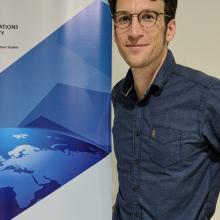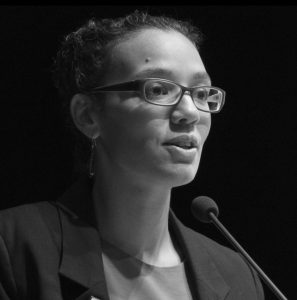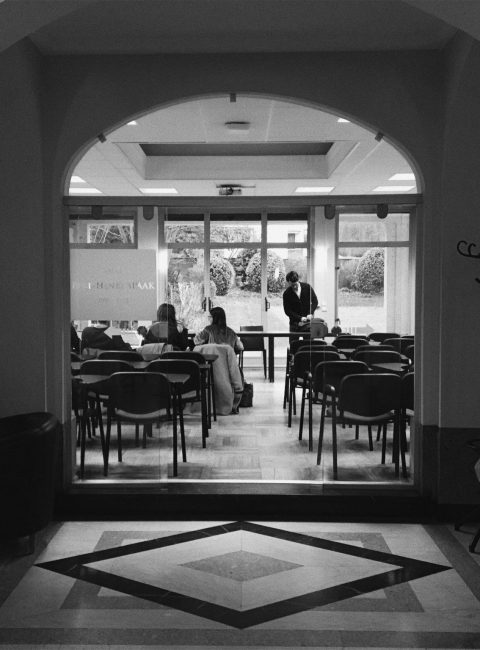Jean Monnet Project ARREAR
“A reassessment of relations between the EU and African regionalisms (ARREAR)”
Academic coordinators: Elisa Lopez Lucia and Frank Mattheis
Since September 2020, the project “A reassessment of relations between the EU and African regionalisms (ARREAR)” reinforces the IEE’s research pillar “Europe in the World”. For a period of two years, ARREAR works on shedding light on the increasing complexity of the EU-Africa relationship. The project is coordinated by Elisa Lopez Lucia and Frank Mattheis and was selected for funding by the European Commission’s Erasmus+ Jean Monnet programme.
For a presentation of the ARREAR project in our QuestionTime series :
About the project and its aims:
The project addresses the increasing complexity in the multiple overlapping and sometimes contradicting interregional layers. In recent years, African regionalism is enjoying a growing prominence in European policy-making. The African Union (AU) is capitalising on the increasing visibility and capacity of its institution, driven by the prospect of a continental free trade area and cross-border conflict management. It has become a first port of call in Africa for the leaders of the European institutions. In this context questions are surfacing regarding the relevance of the other existing frameworks governing partnerships between the European Union and African regionalisms. On one side, the Africa, Caribbean and Pacific states (ACP) format and the Euro-pegged CFA Franc zone embody a colonial legacy. On the other side, the interinstitutional relations between a post-enlargement and post-Brexit EU and increasingly self-confident regional organisations such as the Economic Community of West African States (ECOWAS) have important implications for development aid, political coalitions and security cooperation.
Acknowledging that Africa still occupies a niche in European Studies and that European Studies is still struggling to take root in Africa, the objective of the project is to bring together academics, policy makers and political observers from both regions to explore the future of EU-Africa relations in light of a changing interregional order. The main activities of the project are a series of webinars to held in May 2021 and two international workshops taking place in Brussels, scheduled for autumn 2021 and spring 2022.
Project Reference Number: 621297-EPP-1-2020-1-BE-EPPJMO-PROJECT
Previous events :
On Wednesday 16th June from 4 p.m. to 5:30 p.m. CET, Dr. Amandine Gnanguênon hosted the webinar “Lessons learnt and challenges for building regional security coalitions in Africa”, a third event of a webinar series: Trends of convergence and divergence in EU-Africa relations.
On Wednesday 9th June from 4 p.m. to 5:30 p.m. CET, Dr. Frank Mattheis hosted the webinar “The Post-Cotonou agreement, towards a new era of partnership?”, a second event of a webinar series: Trends of convergence and divergence in EU-Africa relations.
On Friday 4th June from 4 p.m. to 5:30 p.m. CET, Dr. Elisa Lopez Lucia hosted the webinar “The EU and the Sahel: New strategy, new instruments, new opportunities and problems?”, a first event of a webinar series: Trends of convergence and divergence in EU-Africa relations.
On Friday 26th February from 12h to 13h CET, the academic coordinators Frank Mattheis and Elisa Lopez Lucia discussed their new project in an online event hosted by the Network of EU-Africa Research (NEAR). NEAR is one of currently nine research networks funded by UACES, the University Association for Contemporary European Studies and is coordinated by Dr Mark Langan and Dr Sophia Price.
About the coordinators and the academics involved
 Elisa Lopez Lucia, coordinator of the Jean Monnet Project, is a researcher at the Political Science Department of the Université libre de Bruxelles (ULB) and a lecturer at REPI, Department of Political Science, ULB. She is also a research associate at CEISR, University of Portsmouth and a research associate at Chaire Raoul-Dandurand, UQAM. She received her PhD in Politics and International Studies from the University of Warwick.
Elisa Lopez Lucia, coordinator of the Jean Monnet Project, is a researcher at the Political Science Department of the Université libre de Bruxelles (ULB) and a lecturer at REPI, Department of Political Science, ULB. She is also a research associate at CEISR, University of Portsmouth and a research associate at Chaire Raoul-Dandurand, UQAM. She received her PhD in Politics and International Studies from the University of Warwick.
 Frank Mattheis, coordinator of the Jean Monnet Project, is a researcher at the IEE-ULB. He has a Master Degree in Global Studies and he has completed a PhD in Global Studies also, from the University of Leipzig, Germany.
Frank Mattheis, coordinator of the Jean Monnet Project, is a researcher at the IEE-ULB. He has a Master Degree in Global Studies and he has completed a PhD in Global Studies also, from the University of Leipzig, Germany.


 “The European Commission support for the production of this publication does not constitute an endorsement of the contents which reflects the views only of the authors, and the Commission cannot be held responsible for any use which may be made of the information contained therein.”
“The European Commission support for the production of this publication does not constitute an endorsement of the contents which reflects the views only of the authors, and the Commission cannot be held responsible for any use which may be made of the information contained therein.”